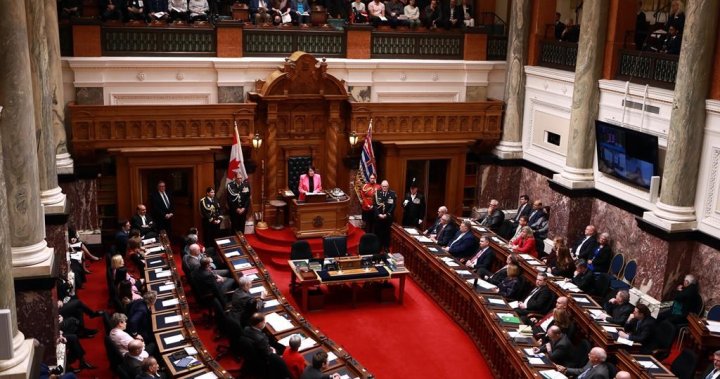The British Columbia legislature stands at a pivotal crossroads today as Premier David Eby’s controversial fast-track legislation faces a crucial vote that could fundamentally alter how development projects proceed across the province. This contentious bill, designed to accelerate housing and infrastructure development, has ignited fierce debate between those who see it as essential for addressing BC’s housing crisis and critics who warn of environmental and community oversight being sacrificed in the name of expediency.
“What we’re witnessing is an unprecedented attempt to streamline development processes at a time when housing affordability has reached crisis levels,” said Dr. Eleanor Weaver, urban planning expert at the University of British Columbia. “The question remains whether acceleration can coexist with proper consultation and environmental safeguards.”
The legislation would grant provincial authorities expanded powers to override local zoning regulations and expedite approval processes for designated “priority projects” – a move the NDP government insists is necessary to address the province’s severe housing shortage. According to recent Canada News statistics, British Columbia faces a deficit of approximately 25,000 housing units annually, contributing to some of the highest housing costs in North America.
Opposition from the BC Conservatives and BC Greens has been swift and unrelenting. Conservative leader John Rustad has condemned the bill as “reckless centralization” that undermines municipal autonomy, while Green Party representatives have raised alarms about potential environmental consequences of fast-tracked approvals.
“Municipalities have spent decades developing comprehensive land use plans with community input,” said Victoria city councillor Sarah Potts. “This legislation threatens to undermine that democratic process in ways that could have lasting consequences for our communities.”
The legislation has created unusual political alignments. Several metropolitan mayors have expressed cautious support, seeing the potential to break through development gridlock, while traditionally pro-development business associations have voiced concerns about provincial overreach. The Urban Development Institute, typically aligned with streamlining measures, has called for amendments to ensure proper consultation processes remain intact.
Premier Eby has defended the legislation vigorously in recent CO24 Politics interviews, citing the province’s housing emergency as justification. “We’re facing an unprecedented crisis that requires bold action,” Eby stated yesterday. “When young families can’t afford homes and seniors are being displaced, we can’t afford business as usual.”
Environmental groups have mobilized significant opposition, arguing that expedited approvals could circumvent critical environmental assessments. Sierra Club BC spokesperson James Chen warned, “Once we sacrifice environmental standards for expediency, those protections rarely return. We’re potentially trading long-term sustainability for short-term construction targets.”
The legislation requires a final vote in the legislature before becoming law, expected later this week. With the NDP holding a majority, passage seems likely barring significant internal party dissent. Several NDP MLAs have privately expressed reservations about aspects of the bill, according to sources familiar with caucus discussions.
If passed, implementation would begin immediately, with the province identifying priority development zones within 60 days. Local governments would then have limited time to align their bylaws with provincial directives.
As British Columbia faces this watershed moment in development policy, the fundamental question remains: can accelerated development coexist with meaningful community consultation and environmental protection, or are we witnessing a false choice between housing affordability and sustainable community planning?
























